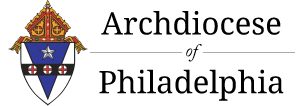Since his election, Pope Francis has spoken in a uniquely powerful way about the need for human solidarity, care for the poor and economic justice. He’s also dealt again and again with the need to protect and support the family. These are not two separate themes. They’re linked organically. And while this Pope’s words have a compelling new energy and joy, they’re grounded firmly in a rich history of Catholic teaching.
Vatican II described the family as “the first and vital cell of society. It stressed that “the well-being of the individual person and of both human and Christian society is closely bound up with the healthy state of conjugal and family life.”
It’s worth browsing through social encyclicals like Leo XIII’s Rerum Novarum; Pius XI’s Quadragesimo Anno; John XXIII’s Mater et Magistra and Pacem in Terris; Paul VI’s Populorum Progressio; John Paul II’s Laborem Exercens, Sollicitudo Rei Socialis, Centesimus Annus and Evangelium Vitae, along with the work of Benedict XVI. Again and again, over more than a hundred year period, we see the family either explicitly or implicitly present as a key element in all the social teaching of the Church.
The reason is simple. The habits we learn and live in the family are the habits we bring to the public square and finally to the world arena.
Nothing is more demanding, and nothing takes more care and self-sacrifice, than love within a family. Loving “humanity” as an idea is easy. Loving flesh and blood family members, friends and neighbors as God wants them to be loved, day in and day out – that’s what separates the wheat from the chaff. Words are important. But actions matter more. And nowhere is that truer than within a family.
Familiaris Consortio (“On the Role of the Family in the Modern World”), released by John Paul II in 1981 as a fruit of the last ordinary synod on the family, is a good place for each of us to begin preparing for the World Meeting of Families later this year. The document reminds us that “it is from the family that citizens come to birth, and within the family that they find the first school of the social virtues that are the animating principle of the existence and development of society itself.” What are those virtues? Justice, charity and a love for freedom and truth as God means freedom and truth to be understood.
Familiaris Consortio stresses that “far from being closed in on itself, the family is by nature and vocation open to other families and to society, and undertakes its social role.” This means that families can’t be fortresses or enclaves. God created us to engage and sanctify the world, not withdraw from it.
It also describes the family as “the most effective means for humanizing and personalizing society.” The family builds up the world “by making possible a life that is, properly speaking, human.”
Prefiguring the words of Pope Francis by three decades, Familiaris Consortio encourages families to become involved in forms of social service, especially those which favor the poor; to cultivate the practice of hospitality and to engage themselves politically. It especially encourages families to “be the first to take steps to see that the laws and institutions of the state not only do not offend, but support and positively defend the rights and duties of the family.”
Here’s the lesson as we start a new year: The most important first step families can take in building a world of justice, mercy and charity is to pray often and together. We can’t stop there, but we do need to begin there. If we do that, and hardwire it into our daily routines, we’ll begin to really “see” the people in need all around us, and to live what we say we believe. That means bringing Christ into all of our daily routines, and all of our daily interactions and reflections, especially when it comes to the poor.
Contact
Kenneth A. Gavin
Director of Communications
215-587-3747






